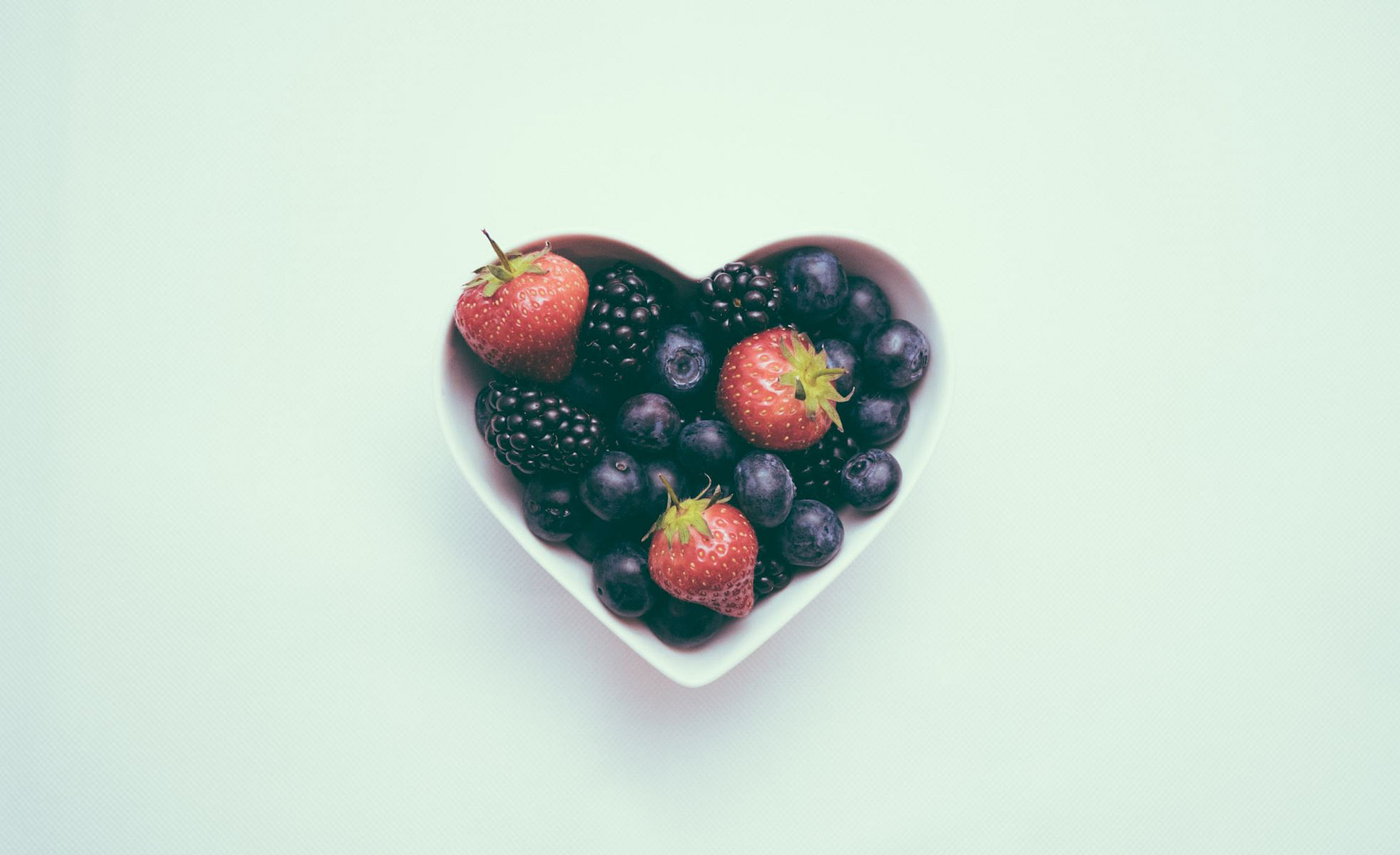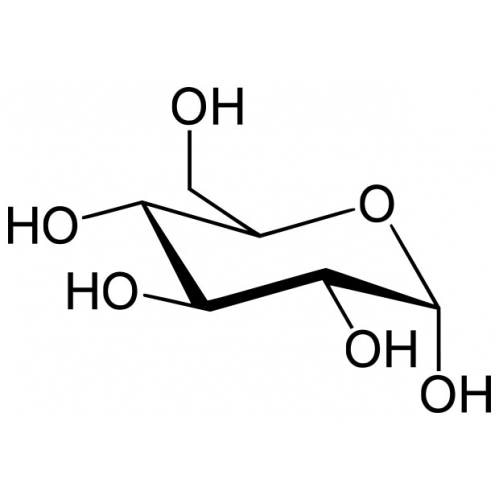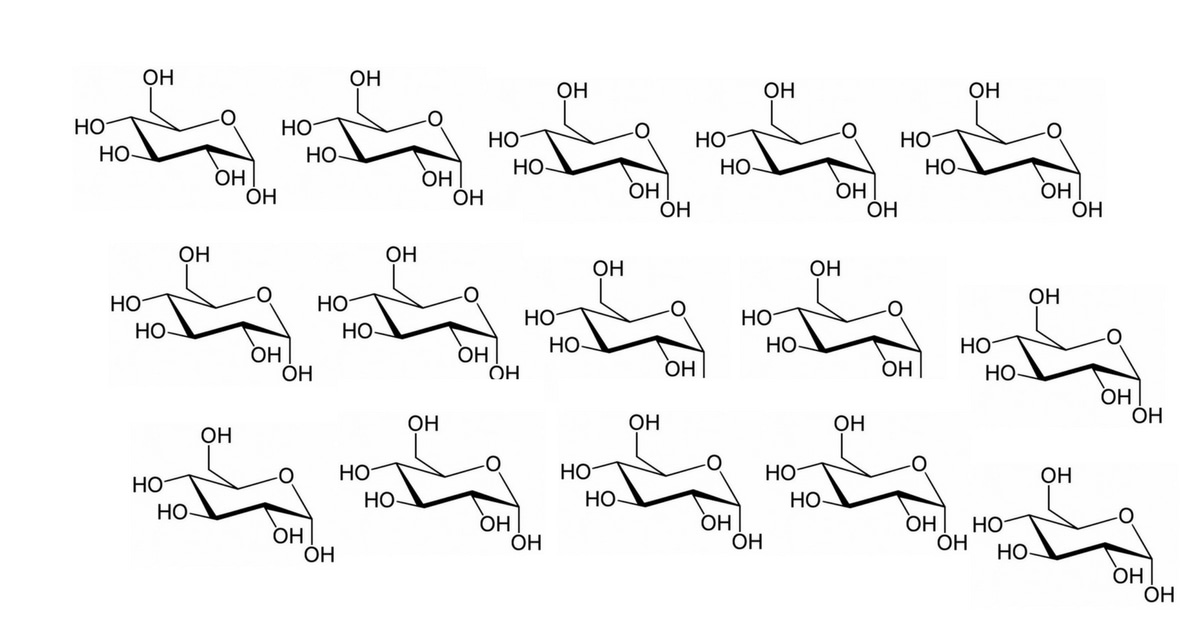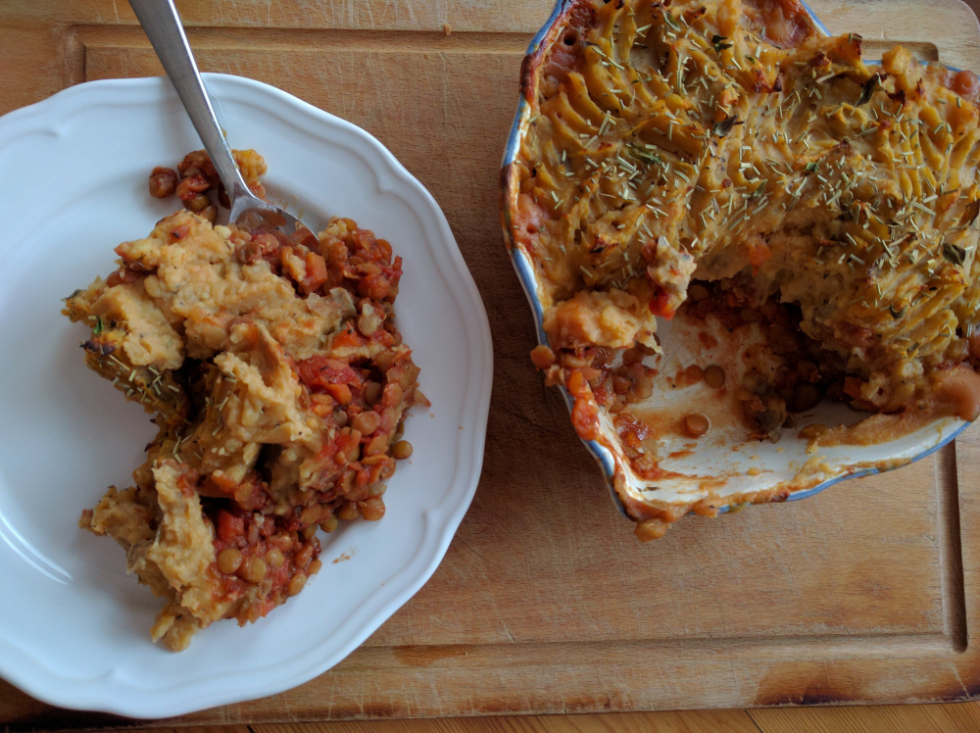It can be hard to figure out how many carbs should you eat a day on a vegan diet. Low-carb, high-carb, vegan keto, raw vegan, what does it all mean?
It seems that plant-eaters are somewhat divided when it comes to how many carbs a day they should be eating. Yes, you can technically survive without eating these nutrients, but it’s not what you might call ideal for several reasons.
The truth is that carbohydrates can be hugely useful for enhancing performance and recovery, improving overall mood and well-being, and accelerating muscle and strength gains during both bulking and cutting.
These are all questions I had when I first got started with a vegan diet, and over years of research and many conversations with nutritionists, I was able to find reliable answers.
We’ll take a thorough look at the notion of ‘carbs lead to weight gain,’ if a high-carb or low-carb diet is right for you, and some actionable tips that you can make use of today to get your carbs dialed in perfectly while avoiding animal products.
Let’s go!
What is Carbohydrate?
So, what exactly is a carbohydrate?
Essentially, the term refers to a number of different organic compounds made out of carbon, hydrogen, and oxygen (CHO).
Carbohydrates, or carbs (see also ‘ Benefits Of Eating A Diet High In Carbs ‘), along with proteins and fat, is one of the three major macronutrients that make up your diet.
These are found in foods such as pasta, muffins, rice, vegetables, fruits, sugar, soda, and all that good stuff.

The primary function of carbohydrate is to be broken down to provide energy for the cells in your body. They are the preferred fuel source for muscles (see arms) and the brain (one exception being insoluble fiber which cannot be digested).
Now despite being a very important part of a healthy vegan diet, and immensely valuable for any athlete (and especially for vegan MMA fighters), it’s not actually essential for survival. While you need some level of fat and protein every day to avoid dying – there’s no such requirement for carbohydrates.
So in theory, you could get along at least somewhatfine with dietary carbohydrate intake at zero.
What happens under such circumstances is that the body undergoes metabolic changes to transition from using carbohydrate to using fat as the primary energy source (the primary shift being towards using ketone bodies as fuel, hence the name ‘ketogenic’ diet).
Related Post: Is Pasta Vegan?
Anyways:
That doesn’t mean carbohydrates are useless, far from it. But we’ll get into that later in this article. Now, these organic compounds come in a variety of shapes, forms, and sizes:
Simple Sugars
When deconstructed, all carbohydrates are made from the same building blocks called monosaccharides, or also known as simple sugar molecules.
The most important one would be glucose. This is measured as blood glucose when it enters your bloodstream and serves as the primary metabolic fuel for all of the cells in your body.
Simply put, glucose is what allows both your brain to function properly, process information, form memories. It is also what provides the required energy for the muscles in your body to lift weights or engage in other physical activities.

Another simple sugar you’ve probably heard of is fructose which is present naturally in different fruits and vegetables. Together fructose and glucose can fuse together to create disaccharides such as sucrose, a.k.a regular table sugar.
Complex Carbs
When simple sugars such as glucose bind together, larger and more complex molecules are formed. Yeah, this is not exactly what it looks like, but it’s the basic gist of it.
These types of molecules are referred to as complex carbohydrates.
For example, starch is a complex carb made from long chains of glucose and is unsurprisingly found in starchy foods such as potatoes, rice, corn, oatmeal, etc.
Then there’s cellulose, or what is known as fiber.

Yeah this is not exactly what it looks like, but it’s the basic gist of it.
Due to the structure and particularly tough chemical bonds, we as humans lack the capacity to break it down entirely for energy needs.
That doesn’t mean it’s useless, quite the contrary. Fiber increases satiety, facilitates healthy digestion and bowel movements, and a type of fiber called soluble fibers is fermented by the microbiota into short-chain fatty acids which can potentially offer a wide range of health benefits (1).
Furthermore, dietary fiber reduces cholesterol levels and has been associated with reduced risk of obesity, cancer, and cardiovascular disease (2) (3).
The key takeaway on fiber is that it’s bloody awesome (and a whole food, plant-based diet provides loads of good fiber which is also awesome)
Does Eating Lots of Carbohydrate Make You Fat?
From an outsider’s perspective, a vegan diet might look like a ticking bomb for weight gain. I mean, justlook atall of those carbs!
When I first went vegan, this was actually one of my biggest concerns when it came to the dieting side of things.
I thought that surely, eating north of 400 grams of carbohydrates per day is way too much and will put me in a position where I gain tons of unwanted fat.

However, I couldn’t really explain why this would happen, except for the advice fed to me by mainstream media and diet gurus.
Is this truly a rational fear?
Well, a lot of the criticisms have to do with the hormone insulin, and it’s negative effects in the body, so that’s a good place to start exploring the subject.
Insulin’s Function in The Body
Its primary job is to ‘open up’ the cells so that they are ready to receive and absorb the nutrients you just ate.
Say you have a tasty vegan muffin and its components are now floating around in your bloodstream in the form of amino acids, glucose, and fatty acids.
This rise in blood glucose signals to your pancreas that it’s time to secrete insulin and take care of these wandering nutrients. So insulin arrives and shuttles them into your muscle and fat tissue.
After this process is done, insulin levels go back down again to their baseline. Hence insulin serves a rather vital function in the body as a “general storage hormone.”

Look at all that tasty insulin…
If we didn’t have insulin, it would be hard to store nutrients for future use if need be.
Now here’s the part that freaks people out about insulin: Remember I wrote: “shuttles them into your muscle and fat tissue.” Well, insulin inhibits both the breakdown of fat cells and stimulates the creation of body fat (4).
Which means insulin stops your body from burning fat as a fuel source and encourages fat gain by pushing glucose and fatty acids into your cells. This specific attribute of insulin has lead to carbs being blamed over the past decade and a half (or longer) as the devil incarnate. The overly simplified explanation usually goes something like this:
- 1Eating lots of carbohydrates throughout the day spikes insulin.
- 2Chronically raised insulin levels tell the body to deposit all consumed energy as fat.
- 3Sooo, the key to avoiding weight gain and lose belly fat – is to reduce carbs/insulin so that you stay “fat-burning-mode
or
Eating less/no carbohydrates = less/no insulin production = less/no fat storage = you become lean and avoid fat gain.
While it sounds good in theory, it’s 100% bullshit. I’ll tell you why.
Eating too many calories is what makes you fat, not insulin or carbohydrates.

It’s silly thinking that cutting all carbohydrates and reducing insulin levels would magically make your body instantly go from “Yay, happy fat burning mode!” to “Booo, sad fat gaining mode.” Especially when you consider the science behind how fat loss actually happens
It isn’t as complicated as you might think:
Either you’re in what is called the ‘postprandial phase,’ a technical term for having recently eaten a meal, where the body’s main focus is storing nutrients such as fat, or it’s in the ‘postabsorptive stage’ where your digestive system is empty, and the body switches to using stored nutrients for energy needs instead.
So, over a 24-hour period, your body switches between these ‘fed’ and ‘fasted’ states, both storing fat after meals and then burning it off again. Here’s a picture where I’ve tried to illustrate this (ignore the horrible design):

How much time you spend on average being either ‘fed’ or ‘fasted’ is what determines weight gain or loss.
At times where fewer nutrients are put into the body than what is used, the result is relatively more time spent in the post-absorptive (fat burning) phase than post-prandial (fat storing) phase.
In accordance with the first law of thermodynamics (energy can be neither created nor destroyed, but only transformed), this, over the course of hours, days, and weeks is what allows you to burn fat and become leaner. Not convinced?
Check out the picture below from a study that had three obese people eat 1500 kcal per day with two different diet setups: one without carbohydrates and one with 74% carbohydrates (5).
There are clear changes in insulin levels, yet the rate of fat reduction remained constant.
And it’s not like this is one isolated, cherry-picked study – ALL of the studies done in metabolic wards where protein, energy, and food consumption are held constant between groups have shown over and over again that there is no difference in fat reduction when comparing low-carb and high-carb diets (6).
What’s the bottom line here then?
Don’t fool yourself into thinking that losing weight is a result of manipulating your endocrine system. When it comes to weight gain and weight loss, it boils down to the simple concept of energy balance.

High Carb vs Low Carb Vegan Diet?


Hopefully, I have made it abundantly clear that carbs aren’t the devil in disguise, and eating them won’t automatically cause you to balloon up.
With that out of the way, how much should you consume relative to other macronutrients? I know that within the vegan community there’s a rather prevalent ‘carb-fetish’ which might not suit everybody’s needs.
Regardless of your goals, genetics, or current body composition, the answer seems always to be ‘carb up baby!’ and eat a shit ton of bananas (see also ‘Is The 30 Bananas A Day Diet A Step Too Far?‘) all of the time.
Having a hard time building muscle? 80/10/10!
Having a hard time losing fat? 80/10/10!
Just for the record, this is not an approach I recommend taking when it comes to carbohydrate planning. While glucose is the body’s preferred fuel source, that doesn’t necessarily mean it’s a particularly smart or productive thing for all individuals to drown themselves in starch, fructose, and other carbohydrates.
A huge flaw to this school of thought is that you won’t fit in as much protein or fat within your calorie intake, both of which are tremendously important for optimal health as well as building muscle and strength (hence why an 80/10/10 macro split probably won’t give you the results that you want).
In fact, going higher on fats is not a deadly sin, and it might be appropriate for certain people if they control it carefully.
Not everyone is alike due to the way nature is set up with its pesky inter-individual variance in genes.
For instance:
One study found that there was up to a 40% difference between individual athletes in the utilization of either carbohydrate and fat for energy needs, and another study on obese women found that if you’re insulin-sensitive, you might lose more fat with a high-carb, low-fat diet, whereas if you are insulin resistant a lower-carb and higher-fat approach might help you lose weight (7) (8).
This means that different individuals can thrive on a variety of different (vegan) diets, both higher in carbohydrates and higher in fats.
I would go out on a limb and say that if you’re overweight, diabetic, and lead a sedentary lifestyle, you’ll most certainly be better off on a vegan and low-carb diet, simply because the extra energy is not needed.
Otherwise healthy and active individuals may even find that too many carbs have them feeling sluggish and tired throughout the day, experiencing more stable energy levels with a moderate-high fat approach.
If that’s been your experience, do not feel like there’s some sort of vegan obligation to go super high carb all of the time.
How to Calculate Your Optimal Carb Intake
A review on nutrition guidelines for strength sports provides recommended carbohydrate intakes for bodybuilding be between 4–7 g/kg (9).
So in my case, as I weigh 80 kg that would mean a range of 80 x 4-7 = 320-560 g of recommended carbs per day.
You can put in your numbers and do the math, and it should give you a good ballpark number to aim for. That’s one way of doing it.
Another way is explained in the article on vegan macros where after having calculated protein and fat, you fill up the rest with carbohydrates until your caloric goal for the day is met.

So, say your vegan macros (see also ‘Vegan IIFYM Guide‘) are 100 g of protein, 50 g of fat and 2500 calories or whatever they may be. Doing the math that would leave 1650 calories left for carbohydrate, and as 1 gram of carbohydrate = 4 kcal, that would be 413 grams.
Generally speaking, the majority of vegan athletes like Patrik Baboumian will perform at optimal capacity by eating a diet with as much carbohydrate as possible.
Hence why this method of determining carbohydrate consumption is preferable as it maximizes said macronutrient.
>>Know more about the vegan athlete diet here<<
How Much Carbohydrate To Gain Muscle?
If you want to maximize muscle gains, and if your body tolerates carbohydrates well, then, by all means, high-carb is the way to go.
As noted above, when carbohydrate is broken down, it provides energy in the form of glucose (or blood sugar).
Glucose that is not immediately used for energy needs gets stored as glycogen – a form of potential energy in the liver and muscles.
During high-intensity exercise (e.g. lifting weights), your muscles utilize these glycogen stores as the primary energy source (10).

Given that your muscles rely on glycogen to lift weights, it makes sense to eat enough carbohydrate to avoid running into the issue of low glycogen levels. If you don’t, well, it’s been shown that low carb intakes can reduce strength training performance and effectively reduce muscular endurance for people who are limiting their calories (11) (12).
You don’t have to be Einstein to figure this out.
Go ahead and perform a workout without a single carb in your system versus eating a big meal of sweet potatoes and black beans beforehand. It becomes obvious pretty fast which dietary approach results in better performance, better energy levels, and vastly better muscle pumps.
One interesting study had experienced cyclists perform 30 repetitions of knee extensions (70% of 1RM) with either low or high muscle glycogen levels (13).
What they found in the group with low muscle glycogen was impaired cell signaling for pathways that regulate muscle growth. And as we’ve repeated over and over again, carbohydrates elevate insulin levels. However, what you might not know is that insulin has some anabolic properties (14).
You see, insulin decreases the rate at which muscle proteins are broken down, meaning it increases the net amount of muscle growth per day. That’s pretty awesome (15).
How Much Carbohydrate To Lose Weight?

I’ll admit that low-carb dieting is a viable option for weight loss. This is particularly so for those that are sedentary, obese and/or diabetic where their bodies simply don’t know how to process carbs or use them in any meaningful way.
However, there’s no evidence indicating it is more effective for weight reduction compared to high-carb dieting.
Here’s the thing:
All studies that claim they have demonstrated a metabolic advantage of ketogenic and low-carb diets over high-carb diets are misleading. These studies all share one major design flaw – protein consumption is not controlled for and the low-carb groups, as a rule, always contain more protein.
You can’t compare a high-protein, low-carb diet to a low-protein, high-carb diet and draw any conclusions because protein is highly satiating AND has a thermic effect. As a matter of fact, carbohydrates have been shown to be a very useful tool if you want to cut your fat while keeping your muscle-mass, and it’s likely got to do with their capacity to boost performance in the gym.
In fact, a recent study suggests that it’s crucially important to take in a certain amount of carbohydrates if you want to maintain or gain muscle mass (16).
You see, although low-carb high-protein diets are often good for losing fat, there seems to be a carb threshold where eating too little of it does poorly influence your performance and make LBM losses more likely.
As a result, if you need to drop your calories when you’re losing weight, then you should sacrifice fat first, followed by carbohydrates. According to recent research, bodybuilding (more here) competitors who land in the top 5 spots eat more carbs than those who failed to place in the bodybuilding competitions (17).
What is the bottom line here? How many carbs should I eat to maintain performance?
To cut down and preserve lean muscle mass, there are good reasons to make sure you get in enough carbs to fill those glycogen stores and keep gym performance intact.
Related Post: Protein Sources for Vegans
Great Sources of Vegan Carbohydrate
A good place to start is complex and fibrous carbohydrates from mostly whole foods such as:

- Fruits And Vegetables: Getting your daily fruit and veggies in is vital to ensure you get the needed vitamin, mineral and fiber boost. But when it comes to carbohydrates, you have to pay close attention, as a lot of options in this food group are actually low-carb.Here are some great sources for vegans: broccoli, dark leafy greens, peppers, apples, blueberries, raspberries and so on.
- Whole Grains: Staying away from highly processed grains is a well-established recommendation not just in the vegan community. And let’s face it, you get a lot more flavor and benefits from whole grains along with a great glucose boost. Try adding some of these to your daily diet plan: brown rice, oatmeal (check out the best instant oatmeal brands), buckwheat, quinoa, millet.
- Starchy Vegetables: If you really want to go high-carb, then high-starch veg is your absolute best option. Not only will they give you the energy boosts on physically active days, but they also fill you up. The result is that you won’t have cravings for snacks and sweet stuff throughout your day. potatoes, sweet potatoes, yams, corn, squash.
- check Legumes: All vegans rely heavily on legumes as a source of protein, but they are often underestimated for how much energy they can provide you. Similar to starchy veg they are an excellent source of fiber and will really fill you up. Here’s what I add to almost every salad and dinner: beans, peas, and lentils.
These are the carbohydrates that we consume “as grown in nature.” They are low in calorie density and high in starch, fiber, and other nutrients, which means that they fill you up with tons of nutritional value, and a lower calorie count (see also ‘The 7 Best Calorie Counting Apps ‘).
These would be your “safe carbs” that you can eat A LOT of because of the low-calorie density and fiber content (plus all the additional nutrients you get as a packaged deal).
As for refined carbohydrates (pasta, bread, muffins and such), it’s absolutely fine to fit them into a diet in moderate quantities if you don’t go overboard on calories for the day. The same is the case with getting vegan carbs from nuts (see also ‘Which Are the Most Protein-packed Nuts?‘) and seeds.
The Bottom Line
As vegans, it is vital that we don’t just focus on not eating animal products. That’s actually the easy part. What is far more complex is learning how you can get all your nutritional needs from plants.
One great option for vegans is to use different kinds of supplements (see also ‘ Turkesterone: Explaining New Vegan Supplement In Town ‘). Even in small doses or occasional use, they will boost your diet and make sure you don’t unknowingly become deficient in macro (see also ‘Understanding Your Macros: Increasing Your Protein Intake‘) or micronutrients.
Avoiding problems with your immune and digestive system is something that should be top on your list, and with the supplements we recommend on this site, you will be able to achieve just that.
[tcb-script type=”application/ld+json”]{“@context”: “http://schema.org/”,”mainEntityOfPage”: “https://veganliftz.com/carbohydrate-vegan-diet/”,”@type”: “Article”,”headline”: “How Much Carbohydrates Should a Vegan Eat a Day (Body Transformation)? – Low vs High Carb Meal Plans”,”datePublished”: “2017-12-17″,”dateModified”: “2019-07-22″,”description”: “Learn all there is to know about carbohydrates on a vegan diet – if they cause fat gain or not, how they can benefit a plant-based diet, and how to calculate an optimal…”,”keywords”: [“vegan carbs”, “high carb vegan diet”, “carbohydrate vegan diet”, “high carb vegan”, “low carb vegan diet plan”, “low carb vegan diet”],”image”: {“@type”: “ImageObject”,”height”: “536”,”width”: “1024”,”url”: “https://veganliftz.com/wp-content/uploads/2017/12/HOW-MUCH-CARBOHYDRATE-SHOULD-YOU-EAT-ON-A-VEGAN-DIET_-1-1-1024×536.jpg”},”author”: “Jason Hughes”,”publisher”: {“@type”: “Organization”,”name”: “Vegan Liftz”,”sameAs”:[“https://www.facebook.com/veganliftz/”,”https://twitter.com/veganliftz/”,”https://www.pinterest.com/veganliftzofficial/”,”https://www.instagram.com/veganliftz/”,”https://www.youtube.com/channel/UCVilJCjZsaI1Q50fbM_IsnQ”,”https://goo.gl/maps/sC3u4cuyWLqYwhBY7″],”logo”: {“@type”: “ImageObject”,”url”: “https://mlbmbvodvbvn.i.optimole.com/w:auto/h:auto/q:100/f:best/https://veganliftz.com/wp-content/uploads/2019/04/Veganliftz_White_Small.png”}}}[/tcb-script]
References:
1. Andoh, A., Tsujikawa, T., & Fujiyama, Y. (2003). Role of dietary fiber and short-chain fatty acids in the colon. Retrieved from https://www.ncbi.nlm.nih.gov/pubmed/125708252. Lisa, Rosner, Bernard, Willett, W, W., & M, F. (1999, January 01). Cholesterol-lowering effects of dietary fiber: A meta-analysis. Retrieved from http://ajcn.nutrition.org/content/69/1/30.full3. Lattimer, J. M., & Haub, M. D. (n.d.). Effects of dietary fiber and its components on metabolic health. Retrieved from https://www.ncbi.nlm.nih.gov/pmc/articles/PMC3257631/4. Kersten, S. (2001, April 15). Mechanisms of nutritional and hormonal regulation of lipogenesis. Retrieved from https://www.ncbi.nlm.nih.gov/pmc/articles/PMC1083868/5. Effect of Diet Composition on the Hyperinsulinemia of Obesity | NEJM. (n.d.). Retrieved from http://www.nejm.org/doi/full/10.1056/NEJM1971100728515046. Buchholz, & C, A. (2004, May 01). Is a calorie a calorie? Retrieved from https://academic.oup.com/ajcn/article/79/5/899S/46902237. Goedecke, J. H., St Clair Gibson, A., Grobler, L., Collins, M., Noakes, T. D., & Lambert, E. V. (2000, December). Determinants of the variability in respiratory exchange ratio at rest and during exercise in trained athletes. Retrieved from https://www.ncbi.nlm.nih.gov/pubmed/110939218. Cornier, M., Donahoo, W. T., Pereira, R., Gurevich, I., Westergren, R., Enerback, S., . . . Draznin, B. (2005, April). Insulin sensitivity determines the effectiveness of dietary macronutrient composition on weight loss in obese women. Retrieved from https://www.ncbi.nlm.nih.gov/pubmed/158974799. Slater, G., & Phillips, S. M. (2011). Nutrition guidelines for strength sports: Sprinting, weightlifting, throwing events, and bodybuilding. Retrieved from https://www.ncbi.nlm.nih.gov/pubmed/21660839/10. Van Loon, L. J., Greenhaff, P. L., Constantin-Teodosiu, D., Saris, W. H., & Wagenmakers, A. J. (2001, October 01). The effects of increasing exercise intensity (see also ‘Isolation Exercises For Different Parts Of Your Body‘) on muscle fuel utilisation in humans. Retrieved from https://www.ncbi.nlm.nih.gov/pubmed/11579177/11. Effects of Carbohydrate Restriction on Strength Performance : The Journal of Strength & Conditioning Research. (n.d.). Retrieved from http://journals.lww.com/nsca-jscr/abstract/1999/02000/effects_of_carbohydrate_restriction_on_strength.10.aspx12. https://www.thieme-connect.de/DOI/DOI?10.1055/s-2007-102501813. Creer, A., Gallagher, P., Slivka, D., Jemiolo, B., Fink, W., & Trappe, S. (2005, September). Influence of muscle glycogen availability on ERK1/2 and Akt signaling after resistance exercise in human skeletal muscle. Retrieved from https://www.ncbi.nlm.nih.gov/pubmed/1587916814. Fryburg, D. A., Jahn, L. A., Hill, S. A., Oliveras, D. M., & Barrett, E. J. (1995, October). Insulin and insulin-like growth factor-I enhance human skeletal muscle protein anabolism during hyperaminoacidemia by different mechanisms. Retrieved from https://www.ncbi.nlm.nih.gov/pubmed/756006315. Denne, S. C., Liechty, E. A., Liu, Y. M., Brechtel, G., & Baron, A. D. (1991, December). Proteolysis in skeletal muscle and whole body in response to euglycemic hyperinsulinemia in normal adults. Retrieved from https://www.ncbi.nlm.nih.gov/pubmed/176784116. Eric R Helms, Alan A Aragon, & Peter J Fitschen. (2014, May 12). Evidence-based recommendations for natural bodybuilding (see also ‘ How to Get the Best Abs in Bodybuilding ‘) contest preparation: Nutrition and supplementation. Retrieved from https://jissn.biomedcentral.com/articles/10.1186/1550-2783-11-2017. A. J. Chappell, T. Simper, & M. E. Barker. (2018, January 15). Nutritional strategies of high level natural bodybuilders during competition preparation. Retrieved from https://jissn.biomedcentral.com/articles/10.1186/s12970-018-0209-z
- Why is My Poop Black: Uncovering the Causes and Solutions - December 21, 2023
- Clear Protein Drinks: Optimal Hydration and Muscle Support for Athletes and Fitness Enthusiasts - December 21, 2023
- Does Apple Juice Make You Poop: Uncovering the Digestive Effects - November 29, 2023








